BLOG
Google: Median Gemini prompt uses 0.24 watt hours of power and consumes 0.26ml of water
Google has released a technical paper detailing its methodology for measuring the energy, emissions, and water impact of Gemini AI prompts.
According to Google, the median Gemini Apps text prompt uses 0.24 watt-hours (Wh) of energy, emits 0.03 grams of carbon dioxide equivalent (gCO2e), and consumes 0.26 milliliters (or about five drops) of water.
As a result, per 1 million queries, Gemini would consume 240,000Wh (240kWh), emit 30,000 gCO2e (30 kgCO2e), and consume 260,000 milliliters (260 liters) of water.
According to Google, it is making strides in reducing the energy and carbon footprint of the median text prompt. The company said that over the last 12 months, it has seen energy and total carbon footprint drop by 33x and 44x, respectively. The results are built on its latest reductions in data center emissions and work to decarbonize its energy consumption.
The methodology is based on relevant energy sources in its inference-serving stack. These include active AI accelerators (TPUs), host CPUs and DRAM, idle machine provisioning, and data center overhead. Excluded from the methodology are external network energy, end-user device energy, model training, and data storage.
A significant issue that was omitted, according to experts, was indirect water use, with the study only including water that data centers use in cooling, and not the water needed for large generation projects that power the data centers themselves.

Liquid cooling: The next evolution in data center thermal management
Why two-phase immersion cooling remains on the horizon:Technical and infrastructure complexity;Economic considerations;Scalability constraints
Scaling challenges: Standards, compatibility, and regulation
Beyond infrastructure and cost considerations, the industry faces broader systemic hurdles. Most chips in circulation today are optimized for air cooling, and adapting to immersion will require significant shifts in design, materials, and performance metrics.
The lack of universal standards for liquid cooling, particularly for two-phase systems, also complicates deployment. Without industry benchmarks, operators face challenges in procurement, installation, and performance validation.
Compliance challenges persist, from handling dielectric fluids to meeting environmental and safety standards.
Bridging the gap with cooling distribution units (CDUs)
With CDUs, data center operators can make a phased transition to direct-to-chip liquid cooling and immersion cooling while capitalizing on efficiency gains and driving towards a hybrid cooling methodology, encompassing high-performance capacity racks for AI applications alongside more traditional, lower-density racks, serving functions such as data storage and email communications.
CDUs can help cut costs and extend system life by reducing reliance on mechanical cooling.
Aligning cooling strategy with sustainability goals
Liquid cooling plays an increasingly important role in meeting sustainability mandates.
Leading cloud and colocation providers, including Google, Microsoft, and Amazon Web Services, actively invest in direct-to-chip liquid cooling and immersion systems.
Preparing for the future of data center cooling
In an environment where thermal management has a direct influence on performance, uptime, and environmental compliance, the transition to immersive and liquid cooling is more than a matter of technological preference. It is a critical step for future operational stability. Organizations that begin evaluating and adopting liquid cooling strategies today will be better positioned to meet the demands of advanced data center workloads and to lead the industry toward greater efficiency and sustainability.

Modine opens India facility to manufacture data center cooling equipment for APAC region
Modine (NYSE:MOD), a diversified global leader in thermal management technology and solutions, has officially opened its new 100,000 ft2 facility in Chennai, India. The event marked the beginning of full-scale, in-region production of Airedale by Modine data center cooling equipment and a strategic positioning to meet accelerated demand from data center customers across the Asia-Pacific (APAC) region.
More ranges are being incorporated into the production schedule to match increasing data center demand across the APAC region, which analysts believe is growing at a compound annual growth rate (CAGR) of 13 percent.
The state-of-the-art facility in Chennai complements Modine’s recently announced investment to expand US production, reinforcing the company’s strategy to serve high-growth markets.
The increasing use of AI applications has driven demand for Airedale by Modine data center cooling solutions, including high-efficiency chillers, indoor air systems, next-generation liquid cooling technologies, intelligent controls, building management systems (BMS), and a global service network.
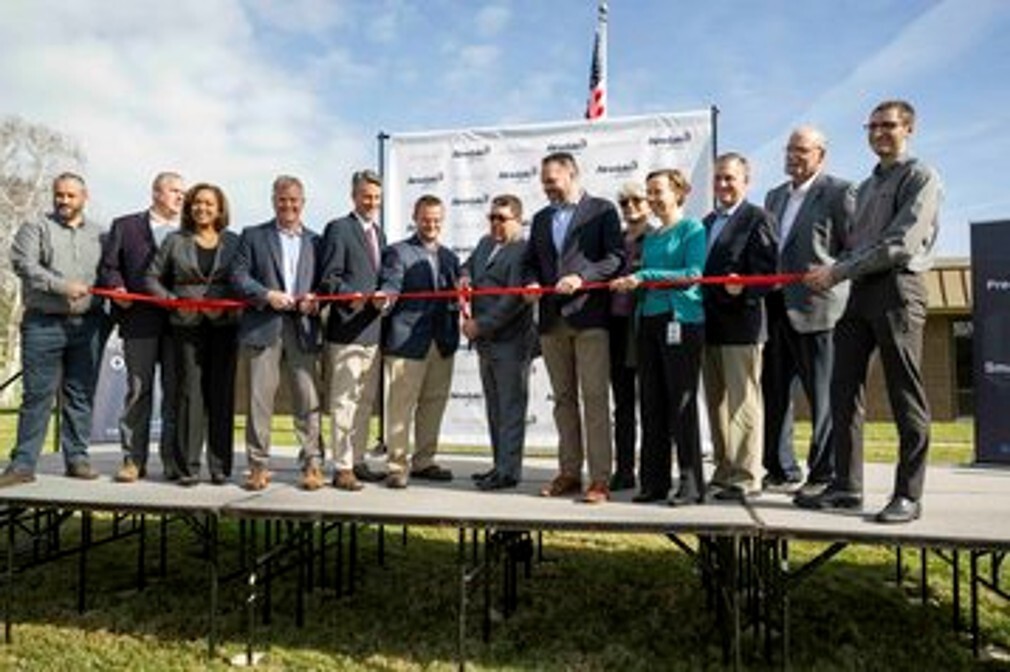
Vantage plots 1.4GW data center campus in Texas
Vantage Data Centers is expanding in Texas with a new gigawatt-scale campus outside Abilene.
The company this week announced plans to develop a 1.4GW data center campus in Shackelford County, Texas.
Situated on 1,200 acres, Vantage’s Frontier campus is set to be the largest across its global portfolio, with the project set to be its biggest investment to date, totaling more than $25 billion.
The campus will be home to 10 data centers totaling 3.7 million sq ft (343,741 sqm), offering rack densities of more than 250kW. Construction on the campus has already begun, with the first building scheduled for delivery in the second half of 2026.
The Frontier campus will offer liquid cooling and utilize a closed-loop chiller system, which requires minimal water for cooling. Vantage will be pursuing LEED (Leadership in Energy and Environmental Design) certification for the campus. The company will have three Meet-Me-Rooms (MMRs) and one point of entry per building.
Shackleford County is some 125 miles west of Fort Worth, close to Abilene, where Crusoe is developing a large campus for Oracle and OpenAI. Albany, the biggest city in the county, is located some 35 miles northeast of Abilene.
DigitalBridge and Silver Lake-backed Vantage operates or is developing data centers across the US, including in Ohio, Georgia, Texas, California, Virginia, Arizona, Indiana, Nevada, Wisconsin, and Washington.
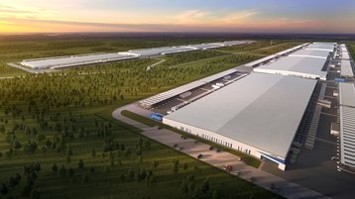
Meta's latest data center campus goes live in Kansas City, Missouri
Meta’s data center campus in Kansas City, Missouri, is live.
The company this week announced the facility is now operational and serving traffic.
The new data center is LEED Gold certified, and its electricity use is matched with renewable energy. It also captures and repurposes stormwater from onsite retention ponds.
Meta’s AI data center design going live next year
Meta has around 30 data center campuses live or in development, with more in the pipeline, including plans for gigawatt-scale developments. The majority of its footprint is within the US. It is also a major lessee of facilities.
Meta paused development of around a dozen data centers in late 2022 as part of a "rescoping" of its designs to better cater to GPUs and liquid cooling. It has since resumed its build-out with the updated design.
The company said this week that its first data centers with AI-optimized designs are slated to come online in 2026, and will “blend high-performance and flexibility with a mix of custom hardware solutions.”
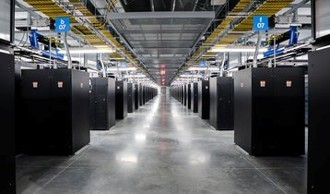
Applied Digital plans 280MW AI data center campus in North Dakota
Former cryptomine company turned AI data center firm Applied Digital is planning a new data center campus outside Fargo, North Dakota.
The company this week announced plans for Polaris Forge 2, a $3 billion, 280MW campus near Harwood in Cass County. The site will use Applied's Polaris Forge liquid-cooled design.
Set to break ground in September 2025, the campus will launch with initial capacity in 2026, reaching full capacity in early 2027. The 900-acre site will initially include two buildings and has secured power through Cass County Electric Cooperative.
Applied currently operates a HPC data center campus in North Dakota – now known as Polaris Forge 1 – in Ellendale, some 140 miles southwest of the new site. Built to support 400MW of critical IT load, with potential to expand to more than 1GW, Polaris Forge 01’s design features a closed-loop, waterless, direct-to-chip cooling system.
After first breaking ground in 2022, the Ellendale site is being repurposed from cryptomine hosting to AI and HPC as part of a major deal with AI cloud firm CoreWeave.
Cass County Electric Cooperative is a not-for-profit, member-owned electric cooperative serving counties across North Dakota.
Elsewhere, Applied has a 106MW facility in Jamestown, North Dakota, known as JMS01, and is also planning a 200MW facility in Iowa. It is reportedly eyeing a major development in South Dakota.
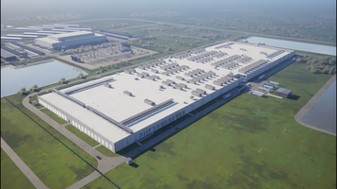
Terakraft and Neurophos deploy AI hardware at data center in Norway
AI data center operator Terakraft and AI chip company Neurophos are teaming up for AI infrastructure at the former's data center in Norway.
The two aim to develop "sustainable" AI infrastructure under the agreement.
Terakraft's data center in Norway is powered by hydropower and cooled by natural lake water. According to the company, it operates with a PUE below 1.1.
Meanwhile, Neurophos says that its chips are 100x more energy efficient than "leading GPUs" for AI workloads. The company develops optical processing units that rely on photonics.
Neurophos says of its chips that, by miniaturizing its optical modulators by a factor 10,000x, it can "deliver the compute power of 100 GPUs while consuming the equivalent of one percent of the energy, validated by end-to-end simulation results.“
Terakraft's website states that the data center has 10MW of IT capacity available to lease, and is capable of supporting high-density racks between 50 and 140kW with rear-door cooling and direct-to-chip cooling options.
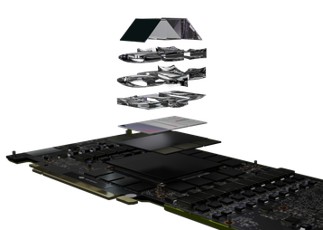
Data center in Maryland sold to local real estate group
A data center in Maryland has been acquired by a local real estate firm.
Nick Sansone, principal at commercial real estate firm Sansone Group, recently announced the company had purchased 12401 Prosperity Drive, a data center in Silver Spring. Sansone partnered with Priseda, a longstanding tenant of the property, to acquire the property.
Poverni Sheikh Group reportedly provided the loan to acquire the site, sourced by JLL Capital Markets. Terms were not provided, but BizJournal puts the figure at around $29 million.
Built around 2009, the 214,000 sq ft (19,880 sqm) facility is described as a Tier IV-quality data center with potential capacity expansion up to 100MW. The site reportedly has a long-term lease with an anchored tenant, with active additional leasing discussions underway for greater capacity. Some online listings report that the site currently offers around 5MW of capacity.
Hosting company ByteGrid still offers services out of the facility, according to its website. DataBridge Sites, a US colocation provider formed from Agile Data Center Sites merging with ESite Systems, also lists the facility on its website. As does Adacen, which previously hosted an immersion cooling container from Australian firm DUG at the site.

Fire at Chirisa Technology Parks data center in Virginia
A fire broke out in a room at a Chirisa Technology Parks data center in Virginia.
The incident began at 8am on Wednesday, August 20, at the facility at 1401 Meadowville Technology Park, Chesterfield County.
The fire was contained to the room, and no one was injured, Chesterfield County Fire and EMS said.
The data center is believed to be part of the joint venture with PowerHouse and Blue Owl to provide data center services for AI cloud firm CoreWeave.
Chirisa did not immediately respond to requests for comment.
Fires remain a high risk at data centers, with the combination of high-voltage power, lithium-ion batteries, and water.
This past 12 months have seen fires at an AWS construction site, an Equinix cage, an X data center, an Indian government data center, a Telecom Egypt facility, a SUNeVision cooling system, and Digital Realty's UPS system.
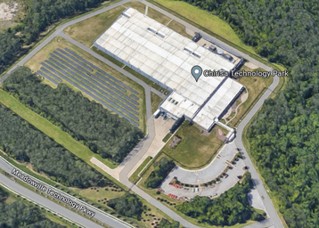
Digital Realty launches a 2MW data center in Nigeria
Colocation giant Digital Realty has launched a new data center in Nigeria.
The company this week announced the opening of its latest data center in Lagos, in the Lekki area of the city.
LKK2 adds nearly 2MW of IT capacity across nearly 1,205 sqm (13,000 sq ft) of data hall space. The facility will be interconnected with Digital Realty’s existing LKK1 facility, which serves as the cable landing station for the 2Africa subsea cable.
LKK2 will interconnect with LOS1 and LOS2, Digital Realty’s existing data centers located on Victoria Island in Lagos.
Digital Realty entered Nigeria in 2021, acquiring Medallion Data Centers alongside African infrastructure investment firm Pembani Remgro Infrastructure Fund. At the time, the company operated two data centers; one in Lagos and another in the capital city, Abuja.
LOS1 currently offers 2MW across 200 sqm (2,150 sq ft). LOS2, a 680 sqm (7,300 sq ft) facility on the same campus at 8 Saka Tinubu Street, opened in 2023.
Medallion has since rebranded to Digital Realty.
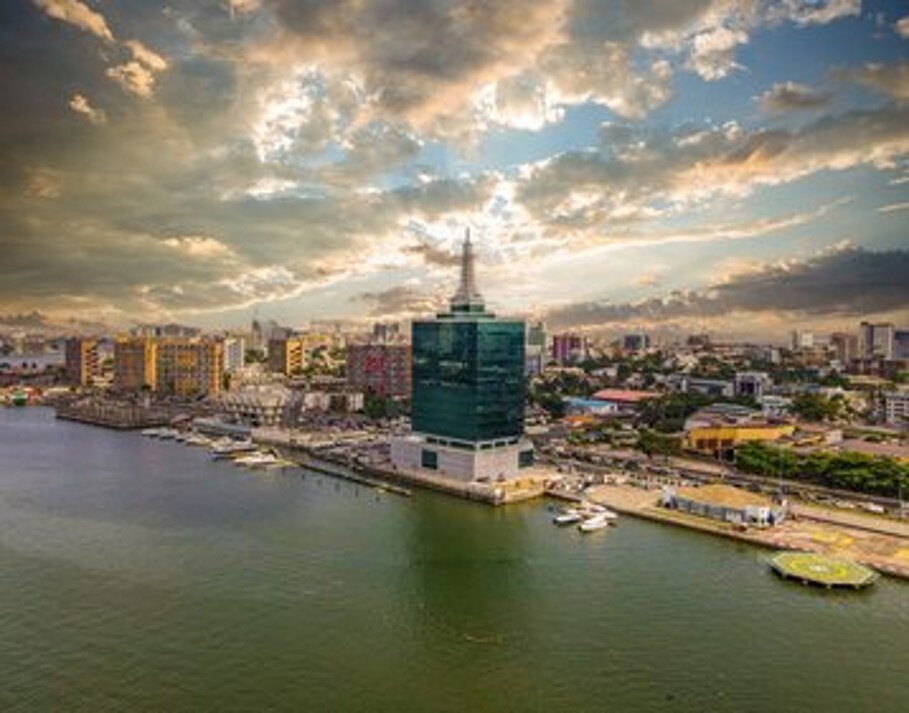
Cirion expands data center in Argentina
Cirion Technologies has announced the expansion of its BUE1 data center in the city of Buenos Aires, Argentina.
The company reports that the center's works include the addition of more than 2MW of capacity and around 160 racks focused on support for intensive workloads, including AI.
The Argentine facility is not the only one undergoing expansion across Cirion's portfolio. The company's São Paulo (SAO1), Rio de Janeiro (RIO1), and Quito (QUI2) campuses have recently completed their expansion work, and the Santiago (SAN2) and Lima (LIM2) facilities are nearing completion.
Gabriel Del Campo, Cirion's vice president of data centers, added that the company's new facilities "incorporate cutting-edge technologies and operate with renewable energy," aligning with the company's commitments to achieve zero liquid Scope 1 and 2 emissions by 2050.
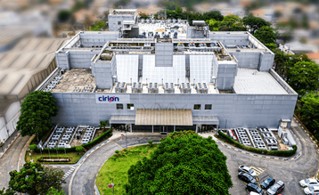
Leave A Reply
LOGO
This stunning beach house property is a true oasis, nestled in a serene coastal community with direct access to the beach.
Opening Hours
Monday - Friday : 9AM to 5PM
Sunday: Closed
Closed during holidays
Contact
+18888888888
hezuo@eyingbao.com123 West Street, Melbourne Victoria 3000 Australia



